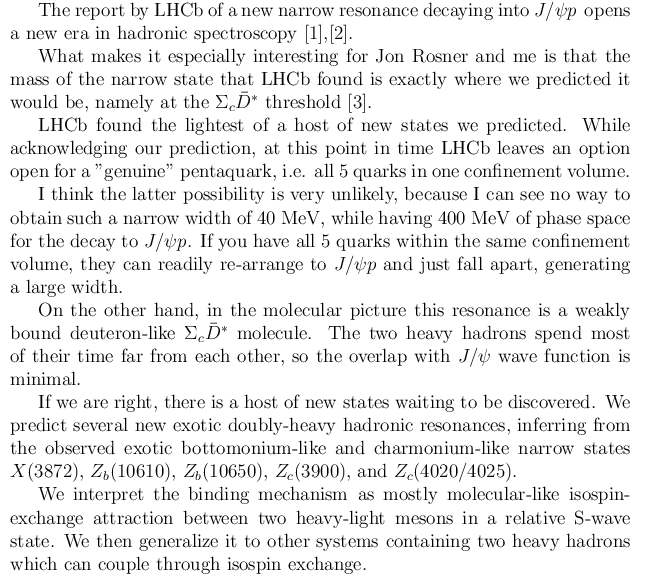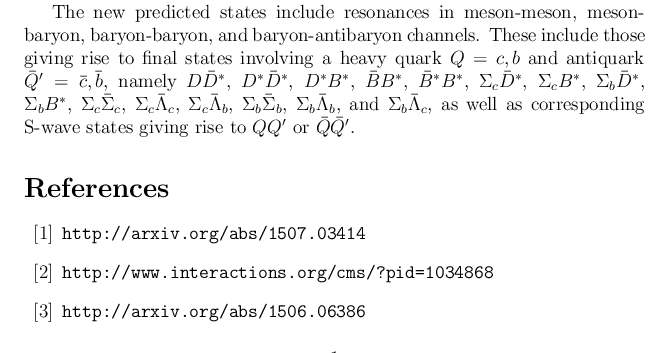Now, I am honoured to know, and have hosted in this blog in the past (where he wrote about doubly heavy baryons, one of his favourite topics) Professor Marek Karliner, who has been investigating composite hadrons for a long time. So I was really happy today to receive a statement by Marek, who argues that the observed LHCb state is very unlikely to be a pentaquark state, as LHCb suggests -but does not go all in to claim, leaving indeed open the door to other explanations of their observation.
Please note that LHCb does acknowledge Karliner's and Rosner's prediction for the state they have found. So, due congratulations to Marek for this!
In my earlier post on the LHCb find this morning I only pointed out, in my ignorance - oh well okay, let's call it "superficial knowledge" - of the matter, that one thing is seeing a bump in a combined mass distribution, another is to know it is a particle. One needs to be able to produce it directly to study its properties, and we are not yet there. The state reported by LHCb is quite interesting, as it sheds light on the complex dynamics of the decays of heavy baryons like the Lambda_b, but it is not proven to be conclusively a particle made by five quarks.
Now here is what Marek offers to the readers of this blog:


You might also be interested to read back what I wrote here on whether tetraquark states claimed in the past are real or not, reporting on a paper by Marek on the matter...




Comments